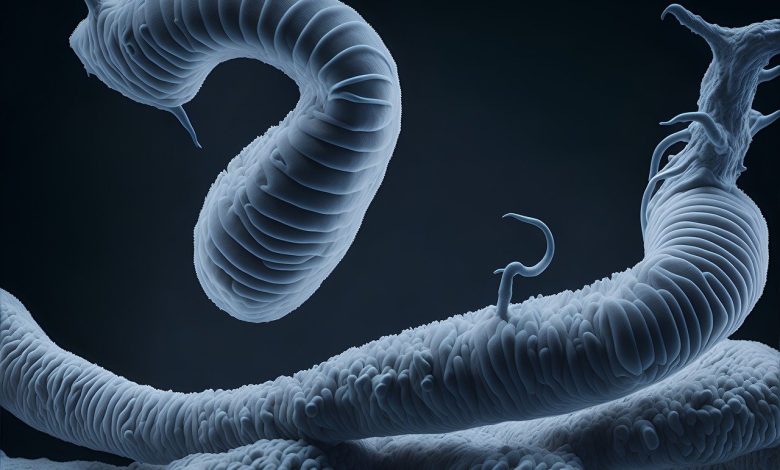Does Amoxicillin Kill Worms In Humans?

Amoxicillin is a widely used antibiotic that belongs to the penicillin group. It is primarily employed to combat bacterial infections, targeting a variety of bacteria responsible for ailments ranging from respiratory infections to skin infections.
However, when it comes to parasitic infections caused by worms in humans, the effectiveness of amoxicillin is limited. In this article, we will explore the characteristics of amoxicillin, its mechanisms of action, and its relevance, or lack thereof, in addressing worm infections in humans.
The Basics of Amoxicillin
Amoxicillin is a versatile antibiotic that falls under the category of beta-lactam antibiotics, specifically penicillins. It is a semisynthetic derivative of ampicillin and is known for its broad-spectrum activity against a wide range of bacteria. The drug works by inhibiting the synthesis of bacterial cell walls, disrupting the structure and integrity of the bacteria and leading to their eventual death.
Mechanisms of Action
The primary mode of action of amoxicillin involves interference with the bacterial cell wall synthesis. Bacterial cells have a rigid outer covering known as the cell wall, which is crucial for their survival and protection. Amoxicillin inhibits the activity of enzymes involved in the formation of this cell wall, leading to structural defects and ultimately causing the bacterial cell to burst.
Limitations in Addressing Worm Infections
Despite its efficacy against a broad spectrum of bacteria, amoxicillin is not effective against worm infections in humans. Worms, or helminths, are multicellular parasites that differ significantly from bacteria in terms of their structure, life cycle, and biochemical makeup. Amoxicillin specifically targets processes related to bacterial cell walls, and since worms lack cell walls, the antibiotic has no direct impact on them.
Nevertheless, studies have shown that some antibiotics like tetracycline doxycycline and ciprofloxacin can cause loss of microfilarial motility in filarial worms. These worms belong to the superfamily Filarioidea and include species such as Wuchereria bancrofti, Brugia malayi, and Brugia timori. These thread-like nematodes (roundworms) are transmitted to humans through the bites of infected mosquitoes.
Worm Infections and Anti-Parasitic Medications
Worm infections in humans are caused by various types of parasites, including roundworms, tapeworms, flukes, and pinworms. To address these parasitic infections effectively, a different class of medications known as anthelmintics or anti-parasitic drugs is required. These drugs are specifically designed to target the unique biological processes of parasites, interrupting their life cycle and preventing further infestation.
Anthelmintics
Anthelmintic medications are tailored to combat specific types of parasites, and their mechanisms of action vary based on the target parasite. For example:
• Mebendazole and Albendazole: These medications are commonly used to treat various intestinal worm infections. They work by interfering with the parasites’ ability to absorb nutrients, leading to their eventual paralysis and expulsion from the body.
• Praziquantel: Effective against tapeworms and flukes, praziquantel alters the permeability of the parasites’ cell membranes, causing muscle spasms and subsequent detachment from the host tissues.
• Ivermectin: Widely used for treating infections caused by certain types of roundworms and mites, ivermectin enhances the release of neurotransmitters in parasites, leading to paralysis and expulsion.
Importance of Proper Diagnosis
Before initiating any treatment for suspected worm infections, it is crucial to obtain an accurate diagnosis. Different types of worms require different treatment approaches, and misdiagnosis can lead to inappropriate medication use and potential harm.
Combating Co-Infections
In some cases, individuals may experience bacterial infections alongside worm infestations. In such instances, a combination of antibiotics, including those effective against the specific bacteria involved, and anthelmintics for the worms may be prescribed. The key is to address each component of the infection appropriately to achieve a comprehensive and effective treatment outcome.
Considerations and Precautions
When prescribed anthelmintic medications, individuals should follow the recommended dosage and course of treatment. Additionally, it is essential to be aware of potential side effects and interactions with other medications. Pregnant or breastfeeding individuals and those with certain health conditions should consult their healthcare provider before initiating any anthelmintic treatment.
Preventive Measures
Preventing worm infections involves adopting proper hygiene practices, such as:
• Handwashing: Thorough handwashing, especially before eating and after using the restroom, can minimize the risk of ingesting parasite eggs or larvae.
• Safe Food Handling: Ensuring that food is cooked thoroughly and handling it with clean hands and utensils can prevent the consumption of contaminated food.
• Avoiding Contaminated Water: Drinking clean and safe water is crucial to prevent waterborne worm infections.
• Wearing Shoes: Protecting bare feet from contact with soil or surfaces contaminated with parasite larvae can prevent certain types of worm infections.
Conclusion
In conclusion, while amoxicillin is a potent antibiotic effective against bacterial infections, it does not have any impact on parasitic worm infections in humans. Addressing worm infestations requires the use of anthelmintic medications specifically designed to target the unique biology of these parasites. Proper diagnosis, adherence to prescribed treatments, and preventive measures play integral roles in managing and preventing both bacterial and parasitic infections. Consulting with healthcare professionals for accurate diagnosis and tailored treatment plans ensures a more effective and targeted approach to infections, fostering better outcomes for individuals seeking relief from diverse health challenges.





